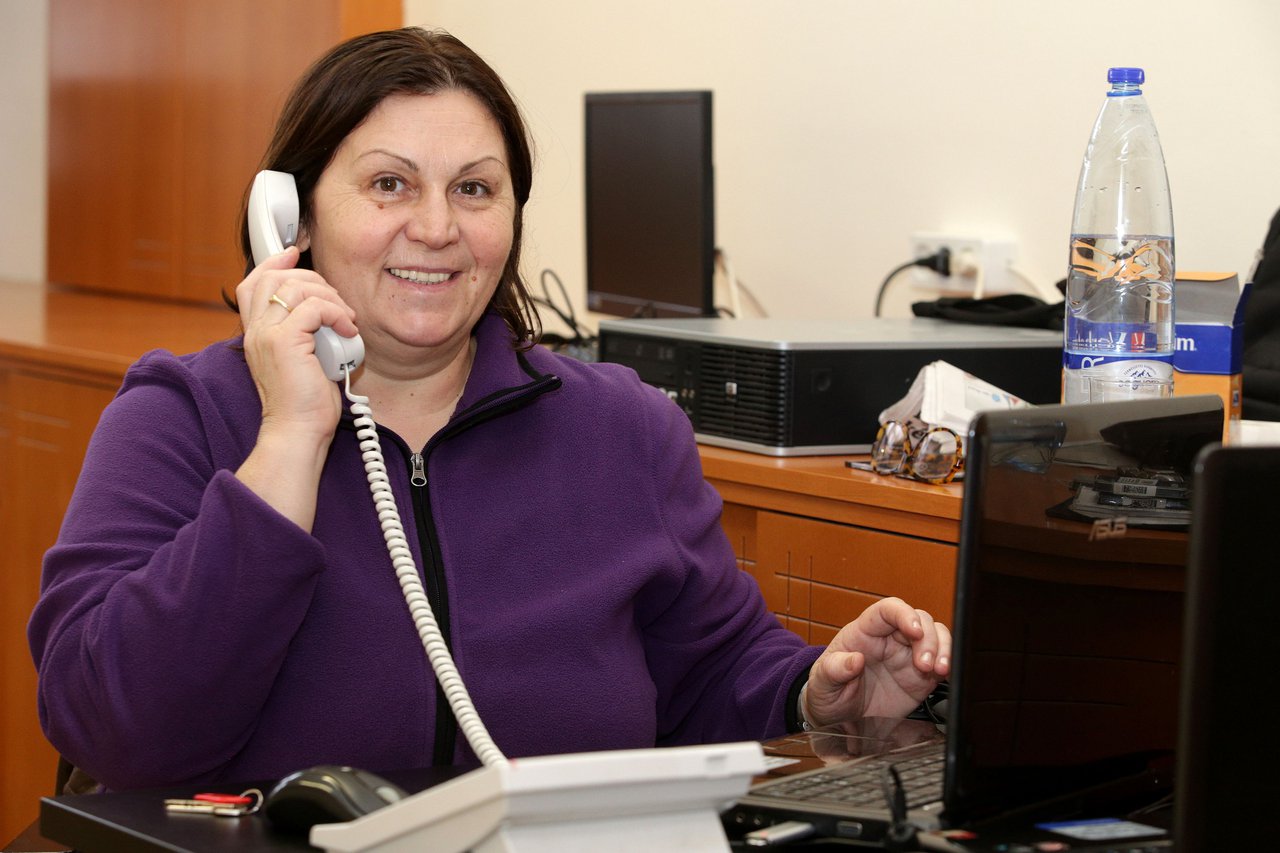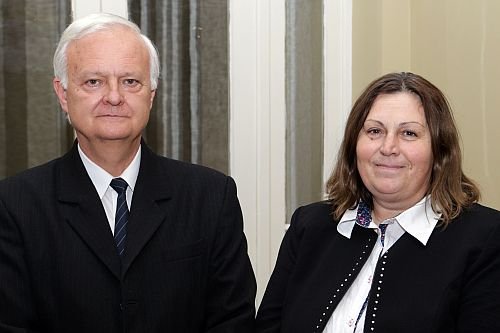We are in the same boat as we navigate the unprecedented crisis due to the Pandemic. Like many of our partner churches around the world, RCH extended its pastoral care presence on phone and online, both regarding timeframe and the number of the volunteers.
As a result, the so-called Reformed Telephone Pastoral Service can now be reached by dialling a toll-free number between 8AM and 1AM. Volunteering professionals answer the calls during this period, which is double as long as it used to be. Also the number of the volunteering pastors and mental health professionals has raised.
Anikó Révész, reformed pastor and leader of the ministry explained the reason behind the expansion: “The coronavirus epidemic puts a lot of spiritual pressure on a lot of people in addition to the clear physical effects. The need for spiritual support has significantly raised. We wanted to respond to these challenges in extending the time of our operation. With this, we can answer up to twice as many calls a day and help people find a way out of situations that often seem hopeless.”
The hotline service, which has been operating for more than thirty years, works with 25-30 volunteering professionals. Conversations last in average around 20 minutes, but there are also shorter and longer ones.
Mrs. Révész explained that those who are calling the hotline “raise questions about loneliness, want to talk about challenges caused by failure, alcoholism, depression, or problems at the working place. Many of the calls are “cries for help” by those considering suicide, or coping with grief and loss, going through a period of crisis, despair, and other emotional problems.”

“This virus has also revealed feelings in people which they didn’t even know about before, which were hidden deeply in us somewhere,” Anikó Révész explains. She points out that the questions around death usually rarely arose in past conversations, and it was almost exclusively raised by those who lost loved ones and called in grief. Today, however, the fear of illness, suffering, and death, has emerged in the majority of those calling the helpline. This virus affects everyone, regardless of age. And those having no mental resistance can develop a strong sense of fear and panic. In addition, many dial the toll-free number because of family conflicts or even domestic violence caused by confinement. It is difficult to tolerate for such a long time the restriction of one’s freedom, and it is not at all easy to slow down in this heightened world either. This in turn leads to frustration and often aggression. Mrs. Révész mentions the fear of unemployment and the sudden change in the existential situation among the main problems caused by the epidemic. "A lot of people are worried about what will happen to their jobs and what they'll live on if they're fired," she says.
The telephone helpline has been extremely busy since mid-March. “So far, the volunteering pastors have been receiving calls between afternoon and late night. During this period they had to answer thirty to forty calls a day, so we needed to expand our capacity” explains the directress of the ministry.
The extension of the time of operation of the helpline made it necessary to raise the number of the staff. Initially, this mental care support was performed exclusively by pastors, but now the range of volunteers has expanded to include teachers, health care workers, psychologists, social workers, but there are also retired colleagues in the team. In all cases, caregivers must fulfil a training before joining the service. Due to the emergency, new volunteers are now also being prepared for the ministry online and over the phone. Therefore, in this situation, only applicants were accepted who already had qualification in pastoral care. “They are experienced people of faith who have already faced many difficulties themselves, and have been able to incorporate this experience into their personalities. It is very important that our volunteers have the right self-knowledge and self-awareness, because this is the condition for an authentic and trustworthy conversation,” Mrs. Révész summarizes.
On 1st May around 35 additional professionals started the extended telephone pastoral care service, which can be used by anyone. The head of the service revealed that there are retirees among those calling who often don’t even look for a solution, just want to talk with somebody. But a high number of young or middle-aged people also dial the line, asking for help with issues of faith, relationships, or self-knowledge. "It's not just believers who call." This is also important because the service was created to be a support to everyone who is in crisis. The role of the telephone pastoral care service is basically offering comfort. Volunteers don’t give advice or solve a problem. Their job is to direct the conversation with their questions so that the on calling will be able to find the solution in his difficult life situation him or herself. “We strive to alleviate desolation, despair, depression, and encourage those who feel they can’t turn anywhere else,” the leader emphasizes.
Calls are obviously anonym which often helps honest conversations. Anonymity is resolved in a single case if the pastor deems the caller to be in danger of death. In such cases, they try to persuade the caller to allow physical assistance. And there have been several examples of this. One of the most difficult conversations is when someone calls the line to report suicide. “In that case, we try to persuade him, let us call a doctor, an ambulance.”

Rev. Dr. Béla P. Tóth, one of the Founders of the pastoral care help line 36 years ago
Hungary's suicide rate statistics in the 1970s and 1980s were so dark that the most important ones were not made public. Among other things, we were world leaders in terms of suicide rates not only for adults but also for those under 14 years of age. Twenty-five years ago, our country led the suicide statistics. Even today, 7 people per day commit suicide, and number of suicide attempts tops at 42-45 cases per day. 70% of suicides are committed by men. In response to the challenge, some Reformed pastors decided to get a telephone line where people could talk to professionally trained people of faith about questions of faith, conscience, human and family problems. The first telephone call was received on 1st September 1984 in the office of the Kálvin tér congregation in Budapest. At a time, when there was hardly a forum where people could turn with their mental problems. Béla P. Tóth, former pastor and psychologist was the first professional head of the service. He learned about this type of pastoral care practice in England. Returning home, together with the famous pastors of the age, he initiated the introduction of the telephone pastoral care ministry with Bishop Károly Tóth. Volunteering pastors have since received more than thirty thousand calls and saved Hundreds of human lives.
”Fear paralyzes you, pulls you down, makes you depressed. We have received the call and the strength from our Heavenly Father to help others finding a way out of the darkness. In this, we humans can help the other person. Hope is there in everyone's soul, it just needs to be retrieved,” says Mrs. Révész, adding that “There is an image that describes the nature of our service very well: the shepherd sees a distant black dot approaching in the snow from far away. He thinks it's a wolf. As he approaches, he sees that it is human being. As he gets all the way close, he discovers that it is his friend.”
RCH operates the ministry under the umbrella organisation of the Reformed Mission Center which coordinates social ministries of the church.